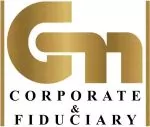Click here to connect with G M Corporate and Fiduciary Services on LinkedIn
A company incorporated under the Companies Act is required by Article 163 to prepare financial statements. Accounting records are required to be kept at the registered office of the company or at another address that the directors deem appropriate, provided that if the accounting records are kept overseas, the accounts are sent to a place in Malta at intervals not exceeding six months and to be made available to company officers at all times.
The first financial statements prepared by the company commence on its registration date and can be prepared for a minimum period of six months and a maximum period of eighteen months. A company can specify a date in the calendar year to be the accounting reference date for year-end purposes by sending the prescribed form to the Registrar within nine months from registration. Failing to send this notification will set 31 December as the year-end.
Company accounts are prepared under GAPSME or IFRS as adopted by the EU and they include all revenues and expenses in the ordinary course of business. Every company is required to submit its tax payment within nine months.
Tax payment is calculated on chargeable income. To calculate the chargeable income the financial statements are used as a basis and they are adjusted for tax purposes. Although Income is not defined in the Income Tax Act, the sources of income are specified in article 4 of the Income Tax Act and include:
- Gains or profits from any trade, business, profession or vocation;
- Gains or profits from employment or office;
- Dividends premiums and interest;
- Any pension charge, annuity or annual payment;
- Rents, royalties, premiums and any profits arising from property.
Allowed expenses are subject to the initial test in article 14 of the Income tax Act which states:
- All outgoings and expenses incurred during the year preceding the year of assessment
- To the extent to which such outgoings and expenses were wholly and exclusively incurred in the production of the income.
Article 14 includes a list of allowed deductions known as the positive test, and article 26 includes a list of disallowed expenses known as negative test.
After the incorporation date the company may assess processes adopted by competition, entering into agreements with employees and suppliers, and purchasing plant and equipment. By reference to UK case law: Birmingham and District Cattle By products Ltd vs CIR these expenses are not deemed to be in the production of the income and therefore are not allowed to be deducted. Article 14(3) allows pre-trading expenses to be deductible provided that:
- The expenses would have been deductible if they were incurred after the company begins to trade; and
- Expenses are incurred not more than eighteen months before the Company commences to trade; and
- They are prescribed expenses by the Minister.
SL123.62 allows a deduction of the following expenses:
- Staff training;
- Salaries and/or wages; and
- Advertising.
It should be noted that items of a capital nature are allowed wear and tear as a deduction over time, provided that the assets are put into use. SL123.01 prescribes the minimum number of years over which plant and machinery can be depreciated. For instance: aircraft airframe, aircraft engines, aircraft engine or aircraft overhaul and aircraft interiors and other parts can be depreciated over a minimum period of 4 years.
GM Corporate & Fiduciary Services Ltd can assist to set up the chart of accounts, the preparation of the financial statements, and VAT returns. In addition, we can assist with drafting of Memorandum and Articles, legal advice and incorporation matters as well as provide a registered address.
The content of this article is intended to provide a general guide to the subject matter. Specialist advice should be sought about your specific circumstances.

